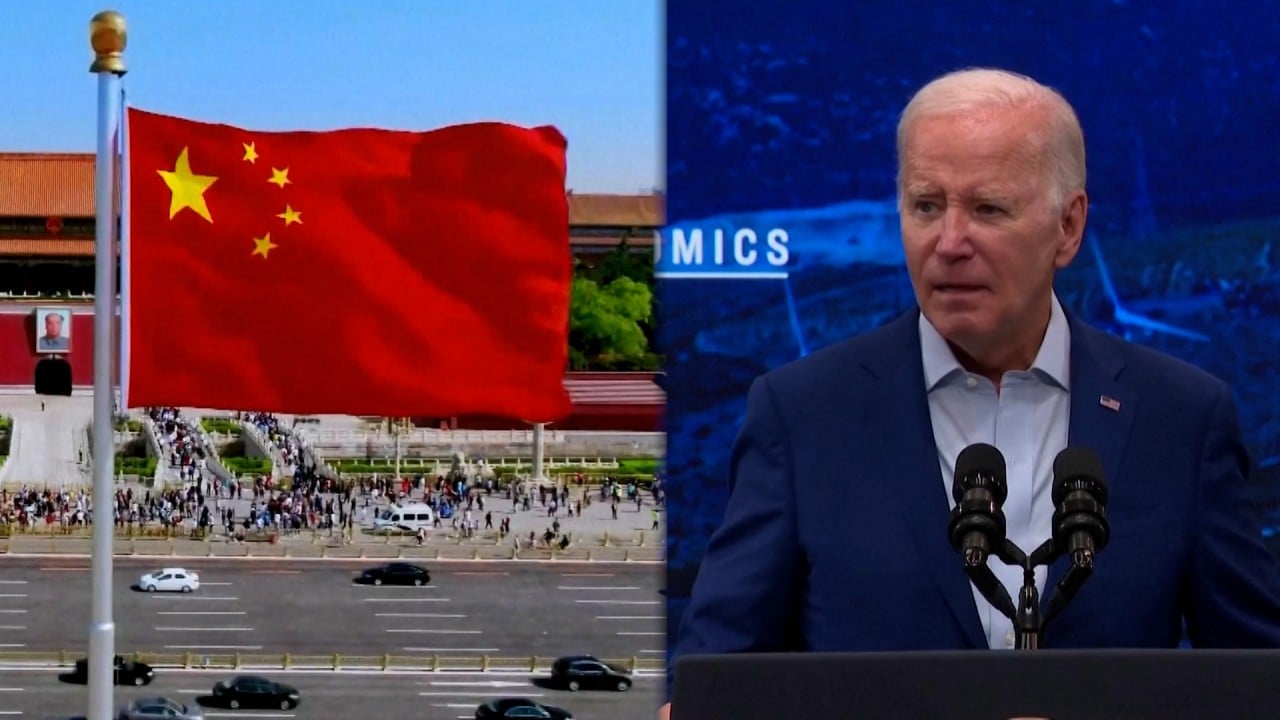Chinese companies were plagued by the most prolonged payment delays among major Asian economies, according to a recent report by global trade credit insurance group Coface. Given higher raw material prices and fierce market competition, customers with a business slump could face financial difficulties that lead to late or partial payments.
Such weakness was exacerbated by China’s strict Covid-control measures and economic recovery slowdown. It discourages enterprises’ operation and investment and could result in more firms being caught in debt situations that they are unable to resolve.
As China’s debt risks mount, the spectre of looming local crises rears its head
As China’s debt risks mount, the spectre of looming local crises rears its head
Meanwhile, a chain of delayed settlements forms so-called “triangular debt”. Companies end up owing money to each other and to their banks, to the possible detriment of their credit. It could create a serious bottleneck for China’s economic growth and intensify financial risks.
Advertisement
A particular focus was placed by the National Development and Reform Commission (NDRC), China’s top economic planner, on the debts that locals governments and state-owned enterprises (SOEs) owe to small and medium-sized enterprises (SMEs), responding directly to concerns widely shared by business owners about difficulties in obtaining payments from these entities.
To improve the government’s credibility and performance mechanism, the NDRC released an announcement on Thursday that local governments considered untrustworthy would face limitations in accessing financial support from the central budget.
Financial support and fair market access
Before the NDRC’s 28-point action plan, the Central Committee, the ruling Communist Party’s top leadership body, together with the State Council, in the most comprehensive policy package issued since President Xi Jinping started his third presidential term in March, had reiterated vows to foster an environment of equal treatment, offering up solid political backing to tear down market-entry barriers for private entrepreneurs.
China’s private entrepreneurs have suffered from persistent discriminatory treatment from China’s state apparatus, including excessive taxes and levies, less access to funding, excessive government supervision, and unfair competition from SOEs.
According to the NDRC’s latest policy guidelines, private capital will be encouraged to participate in an identified list of industries and key state projects and lead technological programmes in essential areas, such as industrial software, artificial intelligence, gene and cell medical care, and chemical energy storage.
China’s tech giants off leash after crackdown, and Beijing is counting on them
China’s tech giants off leash after crackdown, and Beijing is counting on them
Private companies will enjoy a simpler process in gaining research-and-development (R&D) tax deductions, and a shorter wait to receive export rebates.
Advertisement
A package of tax-relief measures was also unveiled by China’s Finance Ministry as part of a range of efforts to bolster the private sector’s confidence. The tax-relief programme, which was first supposed to expire at the end of 2022 but was extended to the end of this year, will now run four more years to the end of 2027, the ministry said.
The latest extension follows a total of 927.9 billion yuan worth of new tax breaks in the first half of the year, with 76 per cent granted to private firms, said the State Tax Administration.
Advertisement
China’s newly appointed central bank governor, Pan Gongsheng, pledged to guide more financial resources towards the private economy, including expanding debt financing tools to firms that requested broader bond-financing channels.
Boosting legal guarantees
China’s top legal bodies pledged to provide more forceful measures to reverse the suppression of private enterprises and increase confidence in their development.
Advertisement
China’s Supreme People’s Court is studying and formulating a package of judicial policies and measures to strictly prevent the misuse of administrative or criminal means to interfere in private businesses’ economic disputes, including excessive fines or penalties, or abuse-related criminal charges.
To promote fair competition, top authorities vowed to take strong measures to prevent the inappropriate use of antitrust law enforcement – a matter that has been a concern for internet giants over the past few years.
Beijing also stressed improving the intellectual-property-protection system, to enhance the crackdown on intellectual-property infringement and improve the guidelines for handling intellectual-property disputes that involve entities outside China.
Pressured from abroad, China tackling ‘bad faith’ trademark rules to protect IP
Pressured from abroad, China tackling ‘bad faith’ trademark rules to protect IP
Positive business environment and communication
The Communist Party oversight body has launched a series of targeted operations to combat the online spread of false information and malicious attacks on private enterprises and entrepreneurs that could damage their reputation or interests, as part of the range of efforts to promote a fair and stable business environment.
Advertisement
As of August 1, the Office of the Central Cyberspace Affairs Commission had cleared more than 86,000 pieces of false and misleading information, and had dealt with 8,425 accounts involved, over a three-month period that began in April.
The NDRC has held multiple rounds of dialogues with private entrepreneurs recently to seek feedback about factors that hinder private companies, and has promised to establish a mechanism for regular communication with the private sector.
Beijing also vows to raise the political status of private entrepreneurs, encouraging “outstanding people” from the private sector to join the lawmaking and advisory bodies at all levels so they could “play a bigger role” in international economic activities.
Advertisement


